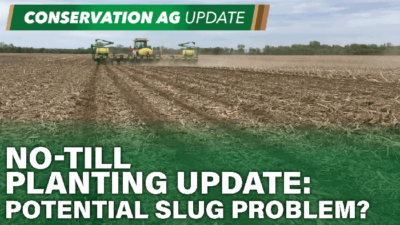There's been heated debate in New South Wales, Australia, about whether mining and farming can coexist side by side.
In January, the NSW Government approved controversial plans for Australia's largest underground mine in the state's central-west. The $2 billion Cadia East project near Orange will extend the lifespan of Cadia Valley Operations by at least 20 years.
But the new mine will require an extra 6 million liters of water a day, which has raised deep concerns among its farming neighbors.
Just over an hour away near Parkes sits the Northparkes Mine, which operates several copper and gold mines. It's surrounded by farmland, but also owns its own farm.
The large property, which acts as a buffer zone around the mine, is used to produce wheat, barley, canola and legumes. The farm's manager, Geoff McCallum, says the crops are grown using no-till practices.
"I farm any areas that are not operational mining areas," he says. "The farm coexists next to the mine and most of the time, I think it works alright."
McCallum has run the farm since 1997.
"When we started using tramlines, there was no other operation around here that was as strict as we were with no-till cropping," he says. "But it's meant that in the really dry times, we might grow a slightly better crop than our neighbours."
The sprawling property has mainly heavy clay soils.
"We've only got 10% of what you'd call ideal cropping soils," McCallum says. "But in the good years, the heavy clays produce very good crops. However, they can suffer from water logging and dryness.
"My first two growing seasons here were probably the wettest on record. But since 2001 we've only had one growing season that's had average rainfall. All the rest have been quite dry."
McCallum says over the past two seasons the farm has been trialing different ways of growing its wheat.
"We run two planters," he says. "One plants at three rows to the meter (39 inches). The other plants at two rows to the metre. The results are quite indeterminate at the moment. They're not what we expected."
Northparkes received an award in 2009 for its holistic approach to land management.






Post a comment
Report Abusive Comment